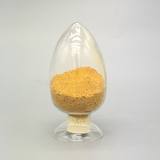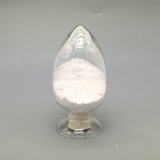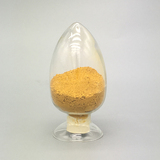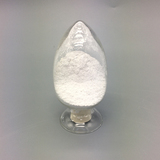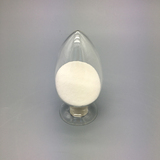- Home
- Industrial & Lab Chemicals
- Agrochemicals
- Bacillus thuringiensis kurstaki
Bacillus thuringiensis kurstaki
Bacillus thuringiensis kurstaki (Btk) is a group of bacteria used as biological control agents against lepidopterans. Btk, along with other B. thuringiensis products, is one of the most widely used biological pesticides due to its high specificity; it is effective against lepidopterans, and it has little to no effect on nontarget species.
- Description
Description
What is Bacillus thuringiensis kurstaki
Bacillus thuringiensis kurstaki (Btk) is a group of bacteria used as biological control agents against lepidopterans. Btk, along with other B. thuringiensis products, is one of the most widely used biological pesticides due to its high specificity; it is effective against lepidopterans, and it has little to no effect on nontarget species. During sporulation, Btk produces a crystal protein that is lethal to lepidopteran larvae. Once ingested by the insect, the dissolution of the crystal allows the protoxin to be released. The toxin is then activated by the insect gut juice, and it begins to break down the gut.
FAQs About Btk
Q1: Is Btk safe for humans and pets?
A1: Yes, Btk is considered safe for humans, pets, and beneficial insects. It specifically targets certain insect larvae and does not affect mammals, birds, or fish.
Q2: Can Btk be used in organic farming?
A2: Yes, Btk is commonly used in organic farming as it is a natural and environmentally friendly pest control method.
Q3: How quickly does Btk work?
A3: Btk starts to work within hours after ingestion by the larvae, causing them to stop feeding. Death usually occurs within a few days.
Q4: Does Btk harm beneficial insects?
A4: Btk is specific to certain insect larvae, particularly those of the Lepidoptera order. It does not harm beneficial insects like bees, ladybugs, or predatory beetles.
Q5: How often should Btk be applied?
A5: The frequency of application depends on the pest pressure and environmental conditions. Follow the product label for specific recommendations, but reapplication is often necessary every 7-10 days during active pest periods.
Q6: Can Btk be used indoors?
A6: Btk is primarily used for outdoor pest control on plants and crops. For indoor use, such as in greenhouses, it can be applied with proper ventilation and safety measures.

